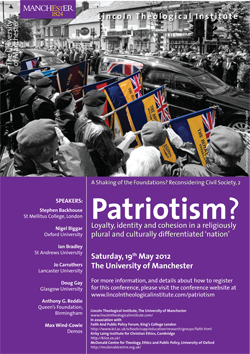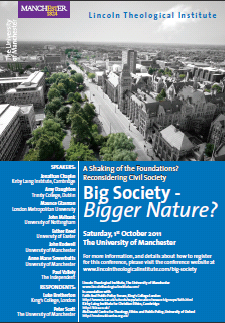 Susannah Cornwall's paper, "Intersex and Ontology: A Response to The Church, Women Bishops and Provision" , is published online today by the Lincoln Theological Institute. Its publication coincides with the Church of England General Synod's latest discussions concerning the consecration of women as bishops.
Susannah Cornwall's paper, "Intersex and Ontology: A Response to The Church, Women Bishops and Provision" , is published online today by the Lincoln Theological Institute. Its publication coincides with the Church of England General Synod's latest discussions concerning the consecration of women as bishops.
The paper is written in response to a document recently published by the Latimer Trust, by a group of writers concerned that a legal framework should be provided to protect those within the Church of England who do not accept the ministry of women bishops. Susannah Cornwall argues that the authors of that document assume a model of theological anthropology which does not take adequate account of the existence of physical intersex conditions.
She says,
"The fact that maleness and femaleness in The Church, Women Bishops and Provision are considered so self-evident that they do not require definition suggests that the authors do not consider human sex something which can be doubted. However, the existence of intersex, and the uncertainty it raises in some respects about polarized, either-or accounts of human maleness and femaleness, means that anthropologies grounded in fixed, polar models of human sex are anthropologies only of some humans. In order to be comprehensive, theological anthropologies should take account of all the evidence available. Not taking account of intersex, then, might lead to problems for arguments grounded in anthropologies of clear, fixed, polarized maleness and femaleness."
This research took place as part of the Intersex, Identity and Disability project at the Lincoln Theological Institute, University of Manchester. "Intersex and Ontology: A Response to The Church, Women Bishops and Provision" may be downloaded as a PDF file, free of charge, from the project's resources page.
For more information about the project, please e-mail susannah.cornwall@manchester.ac.uk
 April 19, 2012
April 19, 2012  Email |
Email |  Post a Comment
Post a Comment 
 As part of the
As part of the 
